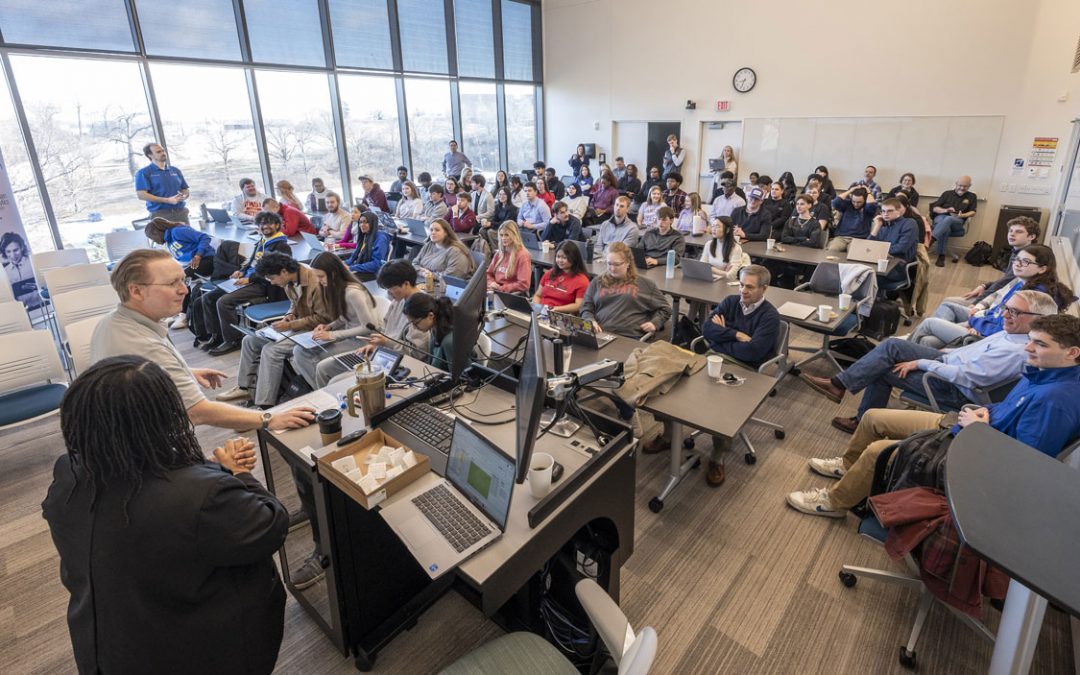
UMSL Professor of Criminology and Criminal Justice Janet Lauritsen was named a Fellow of the American Society of Criminology. (Photo by August Jennewein)
Janet Lauritsen, professor of criminology and criminal justice at the University of Missouri–St Louis, was recently named a Fellow of the American Society of Criminology.
“I feel deeply honored to have received this distinction from my colleagues in the discipline,” Lauritsen said. “When I first started my career, I did not imagine that someday I would receive such an honor. It means a lot to me to know that my colleagues respect the quality of my work and see it as a worthy contribution to the field.
This now makes the Department of Criminology and Criminal Justice at UMSL a member of an elite group.
“The CCJ department now has four faculty members who are fellows, and to my knowledge there are only three other departments in the world that have four or more fellows,” she said. “To me this distinction is an indicator of the positive research environment in our department, as well as the fact that this is a good place for students and faculty to learn from each other.”
UMSL criminologists Bob Bursik, Richard Rosenfeld and Richard Wright are also fellows.
The career distinction of fellow is meant to recognize a scholar for achieving distinction in criminology through cumulative research and work, and it also requires contributions to the discipline through the training and service.
Lauritsen joined the faculty at UMSL 24 years ago after completing her post doctorate research, and today she is is considered one of the nation’s foremost experts in the patterns and trends of criminal victimization.
“Both the university and my wonderful colleagues in the department have been consistently supportive of my research over the years, and that has made it easy to stay here in St. Louis,” she said.
Lauritsen has published more than 50 journal articles, book chapters and book reviews. She has served on numerous, highly influential panels at the National Academy of Sciences including one to review the U.S. Bureau of Justice Statistics.
“My research has been and continues to be focused on criminal victimization, its causes and consequences, and the methodological challenges associated with its measurement,” she said. “A key focus of my current research is on understanding the trends over the past 40 years in various forms of victimization.”
She is working with colleagues and students at UMSL and the University of Iowa in Iowa City, to analyze various sources of data to learn why declines in different types of violence against women have been smaller than the declines in male victimization. In addition, they are looking at how changes in the demographic characteristics of the population may effect trends,
A unique aspect of her research is that she does not rely on data collected and compiled by the police, but on results from almost 8 million survey interviews gathered since 1973.
“This is important because most crime is not reported to the police and because rates of reporting vary across population subgroups and over time,” Lauritsen said.














